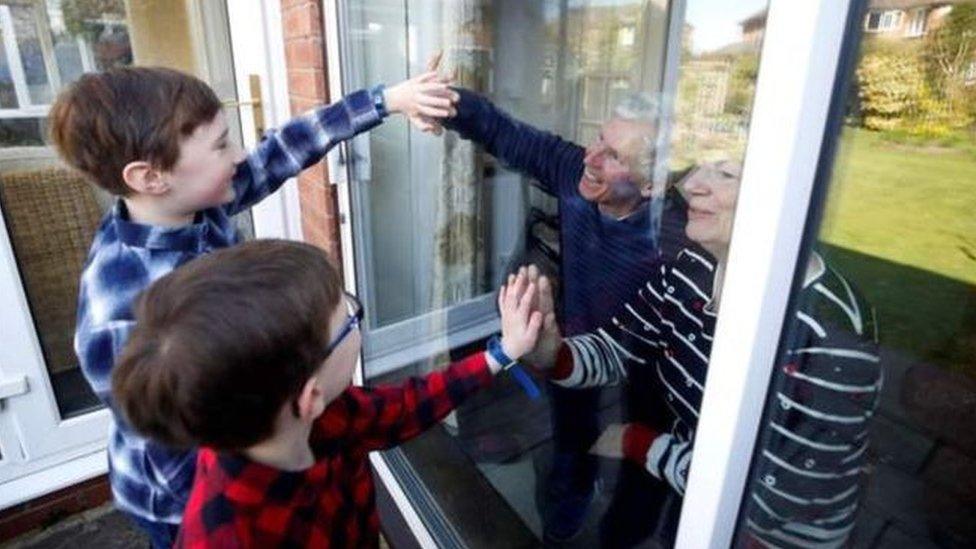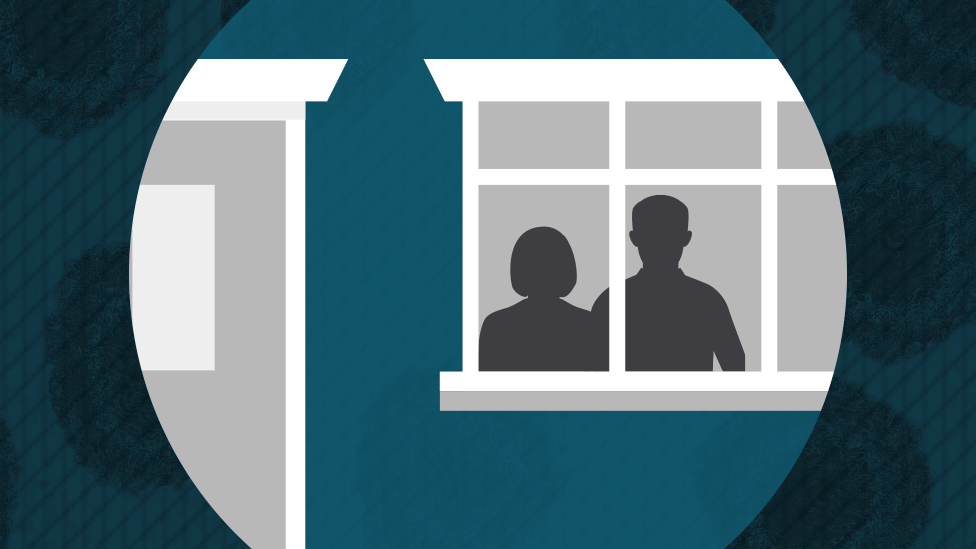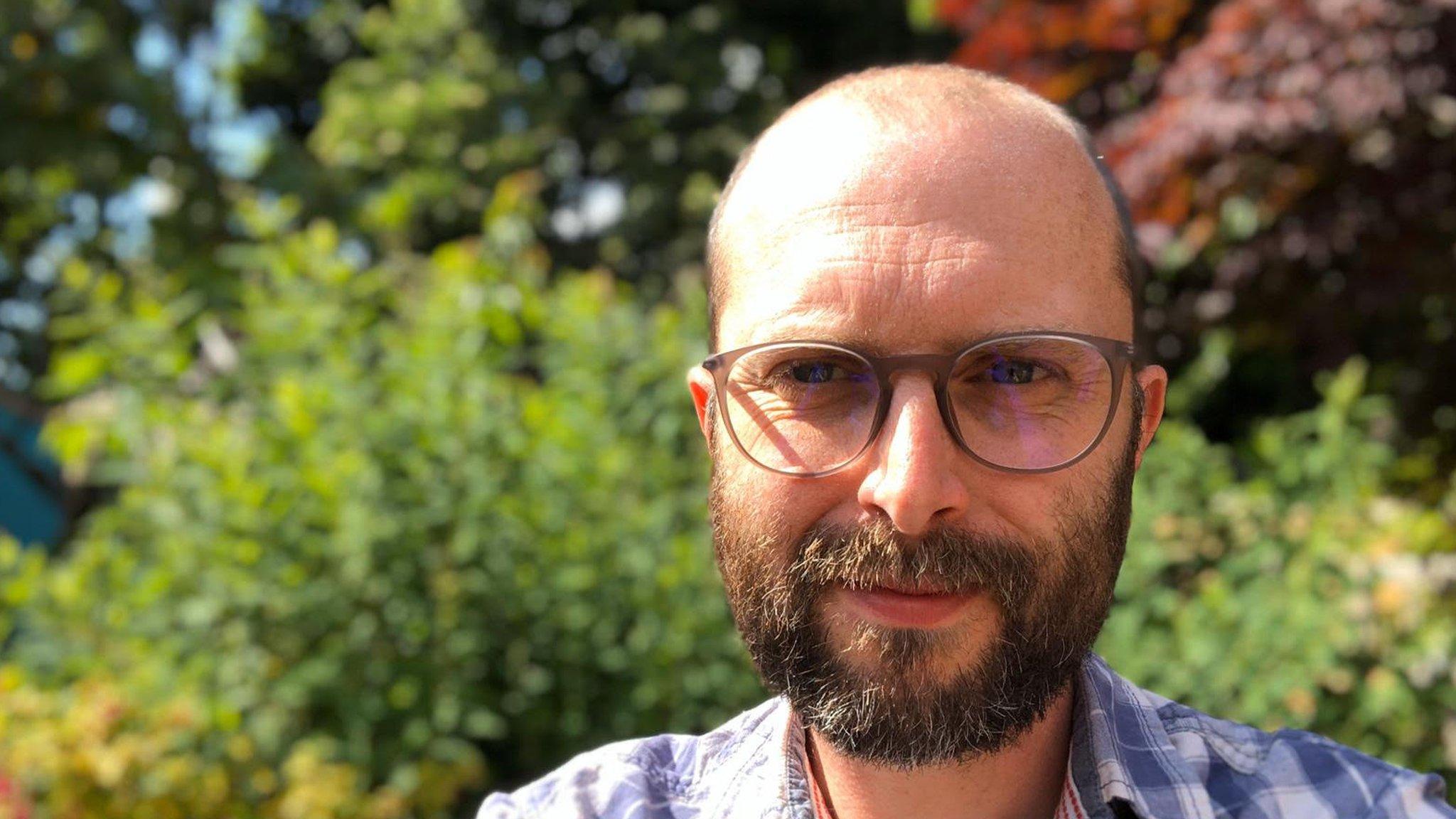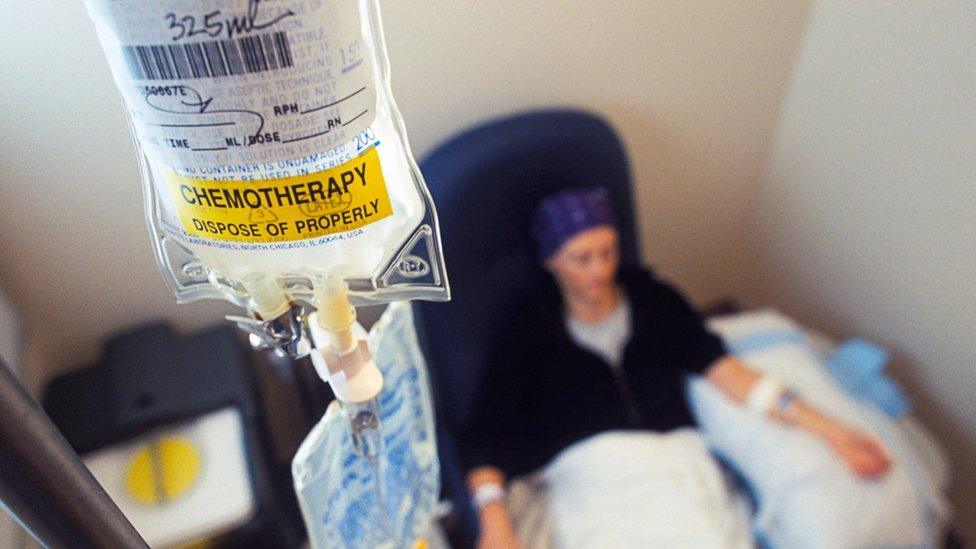Coronavirus: New advice on shielding will be given very soon, says Hancock
- Published
- comments

People most at risk from coronavirus will "very soon" be told when they can stop isolating, the government says.
Some 2.2 million people in England - who have been told to stay home since the beginning of lockdown in March - will get a letter detailing the change, Health Secretary Matt Hancock said.
Charities say the government must explain why it will be safe to change the shielding programme.
Scotland has extended its advice to shield until at least the end of July.
In Northern Ireland, about 80,000 people who were told in March to shield for at least 12 weeks are now receiving letters asking them to continue to do so until the end of June - although they can now spend some time outdoors.
In Wales, since 1 June some 130,000 people shielding have been allowed to do unlimited outdoor exercise - but still should not go to work or do their own shopping.
At the start of June, people shielding in England were told they could go out once a day - to meet one person from another household - while maintaining social distancing. This advice is in place until the end of the month.
Asked about how the advice might change, Health Secretary Matt Hancock told BBC Breakfast: "If you are in the shielded category we will announce very soon what the plans are and we will write to you personally through the NHS so that you can get the direct clinical advice."
It comes after the Health Service Journal (HSJ) reported that England's shielding programme will end at the end of July.
The HSJ, which publishes news, analysis and advice for healthcare workers, reported that the announcement would mean, external food packages and medicine deliveries for people on the shielding list would also stop.
But the government said "no final decision has yet been made" about when to end the shielding programme.
Primary school teacher Lynne Loomes says shielding has become more challenging as lockdown measures ease
"We've always said we will be looking at making life easier for those having to shield, when it is safe to do so," the spokesperson said.
"We are considering the next steps for the shielding programme beyond the end of June, based on the latest medical and scientific advice."
As the UK went into lockdown, people in England considered to be most at risk from Covid-19 were contacted telling them not to leave home and to avoid contact with others.
Among the list of people who should be shielding, external are solid organ transplant recipients, cancer patients undergoing chemotherapy, pregnant women with heart disease and people with severe respiratory conditions such as cystic fibrosis and severe asthma.

FACE MASKS: When should you wear one?
YOUR QUESTIONS: Our experts have answers
LOOK-UP TOOL: How many cases in your area?
SOCIAL DISTANCING: The rules as they are now
TWO METRES: Could less than 2m work?
THE R NUMBER: What it means and why it matters

Several charities have urged the government to explain the rationale behind ending the programme, if and when the decision is made.
Steven McIntosh, policy director at Macmillan Cancer Support, said the communication that the shielded have received "hasn't been good enough up 'til now" - and any announcement must make clear why it is safe for people to stop isolating.
He told BBC Radio 4's Today programme that cancer patients Macmillan nurses have spoken to are "mentally and physically struggling with isolation" and are facing "increasing pressure from their employers to return to work, even though it isn't yet safe to do so".
He added that people need to know what will happen if the infection rate begins to go back up.
Concerns over 'one-size-fits-all approach'
Age UK director Caroline Abrahams said the government must "do all it can" to support older people who are worried their employers may be unwilling or unable to let them return to work, "for fear of being unable to keep them safe".
Gemma Peters, chief executive of Blood Cancer UK, added: "There is a real danger that people will face a choice between financial security and their health, and this would be unacceptable... we're concerned the government is taking a one-size-fits-all approach to lifting shielding."

GROUNDED WITH LOUIS THEROUX: Louis chats to Miriam Margolyes
THE MINDFUL MIX: Soothing sounds to escape to

Nick Moberly, chief executive of the MS Society, said "a blanket lifting of the guidance now" would leave people who have been shielding "feeling even more frightened and anxious".
He added that vulnerable people need reassurance that they will continue to receive food deliveries, and other support such as mental health care, when shielding ends.
- Published13 July 2021

- Published16 June 2020

- Published2 June 2020

- Published8 June 2020
